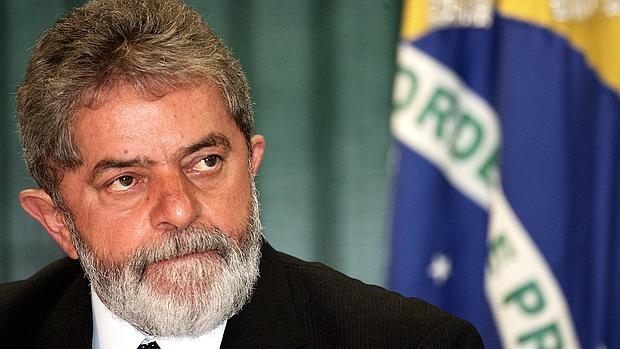For better or worse, former Brazilian President-turned-Prisoner Lula da Silva will go down in history as one of the most decisive figures in the contemporary chronicles of the country’s democracy. He was the first commoner to go against the odds and become a popular president in Brazil, a country divided along social class fault lines.
A shoeshine boy grows into a factory worker, goes on to found Brazil’s Workers Party and subsequently becomes the president; and then, hastily goes to prison. If Lula’s rise and fall teach Brazilians anything, it is that their democracy is on a rollercoaster ride yet again.
On April 4, the Supreme Court of Brazil rejected Lula’s appeal to cut short his journey of exhausting legal remedies on charges of corruptions. And that, some believe, came as a major blow to the Brazilian poor. The verdict, indeed, ended the slim hope that Lula, his supporters, and their sympathizers, at home and abroad, had for his epic comeback to the realm of the Brazilian presidency that has been marred with scandals since his departure seven years ago.
Since Lula has left office, the highest bureau in the hierarchy of the Brazilian federal system has remained unpopular and arguably unfilled. Even though his successor Dilma Rousseff completed her first term and became president for the second time, she was impeached.
Incumbent Brazilian President Michel Temer has been hit with corruption allegations and is portrayed as a scandalous figure (albeit surviving the impeachment). Both post-Lula leaders have lacked the charisma he had shown throughout his popular presidency between 2003 and 2011. Evidently, his shoes have been too big to fill.
Projected to be the frontrunner in the upcoming October presidential election, although in the face of an imminent legal battle defeat, Lula would have, hypothetically, assumed office by January 1, 2019, given his party’s slender majority votes. That has already been showcased in the runoff presidential elections of 2010 and 2014. On both occasions, Lula’s candidate, impeached President Rousseff, won.
Lula’s supporters and opponents alike can only imagine what his comeback to power would have meant to Brazil. This sensation of excitement and fear, however, seems to have gone, perhaps permanently, since he, being at an older age, has to serve 12 years in jail. Even if he is in good health with no legal restrictions, given his “criminal” conviction, it is unrealistic to fancy his chance of recapturing another political height down the road.
Perhaps, this upcoming presidential election was the last shot for decisive Lula, who is loved by the masses and hated by mid-level oligarchs (the top oligarchs, particularly those involved in the “car wash” case, seem to have been his partners in crime).
Lula can be portrayed as a great leader or as a corrupt one, but Brazilians should not hold grudge against one another because they are his supporters or opponents. They should view the current state of democracy in their diverse country as a major opportunity to draw lessons. Why should any single individual attain the level of political influence equal to Lula’s in a major country like Brazil? After all, either power or the fear of losing it is corrupt.
Finding Democratic Equilibrium
A polity where oligarchy and democracy meet, and their constituencies have to compromise to reach a win-win constitutional consensus to realize equal rights and opportunities as citizens, was something that Aristotle found preferable in the 5th century B.C. Democracy, which Aristotle was reluctant to recommend, was the form of government where masses had the power to serve themselves at the expense of the oligarchs. Similarly, he warned against oligarchy for being despotic and exploiting the masses. As diverse Brazil is, Aristotle’s type of polity gives it democratic balance needed to serve all classes of the society.
Irrefutably, oligarchs or elites have exploited masses almost everywhere, and Brazil has not been an exception. Lula had experienced this first hand as a factory worker and, maybe, he had taken Brazil far away from oligarchy – beyond polity — to pluralistic democracy, leaning toward the tyranny of the majority. During this transition, the mid-level oligarchs had become the primary victims of the system. Living and briefly teaching in Brazil, I witnessed this in person, particularly watching my father-in-law, an honest business owner on the outskirts of Sao Paulo, who lost everything in 2014.
Lula’s Lost Chance and Demise
Lula’s presidency in 2003 – 2011 was one of the most critical decades for Brazil’s future, considering his popularity and how eccentric he was. Before Lula assumed office, the outgoing president, well-known Brazilian scholar Fernando Henrique Cardoso, had not only pulled Brazil out of crises during his eight-year tenure, but also had placed the country on an automatic development trajectory that was inevitably growth-bound.
However, socio-politically, the country was on the verge of uncertainty. It could go left, right or stay in the middle, with President Lula being in the driving seat. Given his charisma and popularity in Brazil and beyond, he had every opportunity to make choices that would benefit all Brazilians.
However, when he assumed office, Lula had seemingly fallen victim to the vicious oppressed-oppressor cycle. As the workers party leader, he wanted the workers to exploit the “exploitive” business owners. He could have risen above such revenge-based partisan leadership, as Nelson Mandela did in South Africa, to serve all Brazilians regardless of class. Instead, he went to become the president of the “poor” exclusively, as claimed in his goodbye speech in 2011.
Lula’s sincere attempts to help the poor deserve the highest praise possible, but his rhetoric of “poor against the rich” translated into intense labor and taxation policies targeting small and medium-sized businesses, which resulted in detrimental damage to middle-class Brazilians. Instead of indulging workers with effortless income and overprotective labor laws, he could have negotiated schemes with businesses to enhance workers’ “capabilities” by effectively investing in education and launching civic programs.
With such crimes as daylight of robbery in Brazilian neighborhoods during the 2014 World Cup 2014 and the 2016 Rio Olympics, covered by global media, Lula and his party have to bear some responsibility for failing to address some of the core socio-economic problems of Brazil.
Nonetheless, Lula’s supporters have been left heartbroken, and there is truth to their narrative that Brazilian elites expedited their leader’s criminal conviction. Brazilian Military Chief, Eduardo Villas-Boas, has been accused of intimidating judges in a tweet hours before the Supreme Court’s narrow 5 to 6 rule to reject Lula’s appeal. The step gave Brazilians a feeling of déjà vu, evoking the dark times of 1964 when members of the Brazilian Armed Forces overthrew President João Goulart.
Way Forward
For the sake of democracy, Brazilians, both Lula’s supporters and opponents, should avoid using him as a crossing avatar to form the opposition in his image. After all, Lula is charged with corruption. They need to protect their country from “perversion” oligarchy or “bad” democracy in order to prevent oligarch and pluralist leaders from taking Brazil as a hostage of their self-interests.
Adjusting to Aristotle’s polity, while searching for “philosopher king” similar to former President Cardoso, may put the country out of crises yet again. Otherwise, the egocentric class competition between “some segments” in the upper and lower classes will prevent Brazil from reaching its full potential as an emerging economy. After all, the essence of being Brazilians – happy, diverse, harmonious, loving and united people – is in collective singing of “Idolatrada,” the anthem, and not in Lula.
Disclaimer: The views and opinions expressed here are those of the author and do not necessarily reflect the editorial position of The Globe Post.




















